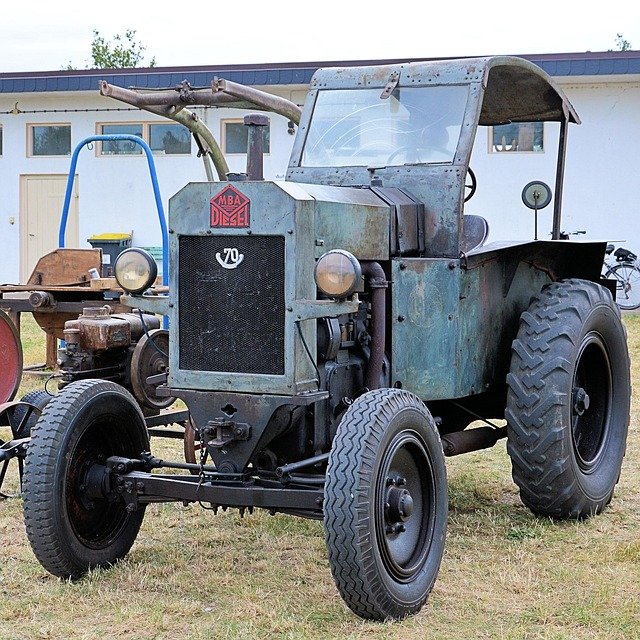Tractors: Essential Equipment for Agriculture and Property Management
Whether you're managing a small farm or a large property, tractors are essential for heavy-duty tasks. Explore deals on new and used models with features tailored to mowing, tilling, hauling, and more. Find out more information on the types of tractors for sale.

What are the main types of tractors available for sale?
Tractors come in several different types, each designed for specific purposes and environments. The most common types include:
-
Utility tractors: These versatile machines are suitable for a wide range of tasks on small to medium-sized farms and properties. They typically range from 40 to 100 horsepower and can handle tasks such as mowing, tilling, and hauling.
-
Row crop tractors: Designed specifically for cultivating row crops, these tractors feature high ground clearance and adjustable wheel spacing to navigate between planted rows without damaging crops.
-
Compact tractors: Ideal for small farms, landscaping businesses, and large residential properties, compact tractors are smaller and more maneuverable than their larger counterparts. They typically range from 15 to 40 horsepower.
-
Specialty tractors: These include orchard tractors, which are designed to work in tight spaces between fruit trees, and industrial tractors, which are built for construction and earthmoving tasks.
-
Four-wheel drive tractors: These powerful machines offer increased traction and stability, making them suitable for heavy-duty tasks and challenging terrain.
What features should you consider when looking at tractors for sale?
When searching for tractors for sale, it’s essential to consider several key features that can impact performance and suitability for your specific needs:
-
Horsepower: The amount of power a tractor can generate is crucial for determining its capability to handle various tasks. Consider the most demanding jobs you’ll need to perform and choose a tractor with sufficient horsepower.
-
Transmission type: Tractors can have manual, synchronized, or hydrostatic transmissions. Each type has its advantages, so consider which best suits your operating preferences and the tasks you’ll be performing.
-
Hydraulic system: A robust hydraulic system is essential for operating attachments and implements. Look for tractors with sufficient hydraulic flow and multiple hydraulic outlets.
-
Comfort features: If you’ll be spending long hours in the tractor, consider models with comfortable seating, air conditioning, and ergonomic controls.
-
Fuel efficiency: Modern tractors often come with fuel-efficient engines that can help reduce operating costs over time.
-
Attachments and implements: Ensure the tractor you’re considering is compatible with the attachments and implements you plan to use.
Why should you consider used tractors as an option?
Used tractors can offer significant cost savings compared to new models while still providing reliable performance. Here are some reasons to consider used tractors:
-
Lower initial investment: Used tractors are generally much less expensive than new models, allowing you to acquire the equipment you need without breaking the bank.
-
Proven reliability: Many used tractors have a track record of performance, giving you a better idea of their capabilities and potential issues.
-
Wider selection: The used tractor market offers a vast array of models, including discontinued or hard-to-find equipment that may be perfect for your needs.
-
Slower depreciation: New tractors depreciate quickly in their first few years, while used tractors tend to hold their value better over time.
-
Availability of parts: Older tractor models often have a well-established network of aftermarket parts suppliers, making maintenance and repairs more accessible and potentially less expensive.
What are the key factors to consider when buying utility tractors for sale?
Utility tractors are popular choices for their versatility and ability to handle a wide range of tasks. When looking at utility tractors for sale, consider the following factors:
-
Size and power: Choose a tractor that’s appropriately sized for your property and powerful enough to handle your most demanding tasks.
-
Lift capacity: Ensure the tractor can handle the weight of the implements and materials you’ll be working with.
-
PTO (Power Take-Off) options: Look for tractors with multiple PTO speeds to accommodate various attachments and implements.
-
Drivetrain: Consider whether a two-wheel drive or four-wheel drive tractor is more suitable for your terrain and tasks.
-
Cab options: Depending on your climate and comfort preferences, you may want to choose between an open station or enclosed cab tractor.
How do new and used tractor prices compare in the current market?
When considering tractors for sale, it’s essential to understand the price differences between new and used models. Here’s a comparison of typical price ranges for various tractor types:
| Tractor Type | New Price Range | Used Price Range (3-5 years old) |
|---|---|---|
| Compact | $15,000 - $30,000 | $8,000 - $20,000 |
| Utility | $30,000 - $75,000 | $15,000 - $50,000 |
| Row Crop | $100,000 - $300,000 | $50,000 - $200,000 |
| 4WD/Track | $250,000 - $500,000 | $150,000 - $350,000 |
Prices, rates, or cost estimates mentioned in this article are based on the latest available information but may change over time. Independent research is advised before making financial decisions.
It’s important to note that these price ranges can vary significantly based on factors such as brand, model, features, and local market conditions. Additionally, the cost of ownership should consider factors beyond the initial purchase price, such as fuel efficiency, maintenance requirements, and potential repair costs.
In conclusion, tractors are essential equipment for a wide range of agricultural and property management tasks. Whether you’re considering new or used tractors for sale, it’s crucial to carefully evaluate your needs, budget, and the specific features of each model. By doing so, you can find the perfect tractor to increase your productivity and efficiency in managing your land or agricultural operations.




